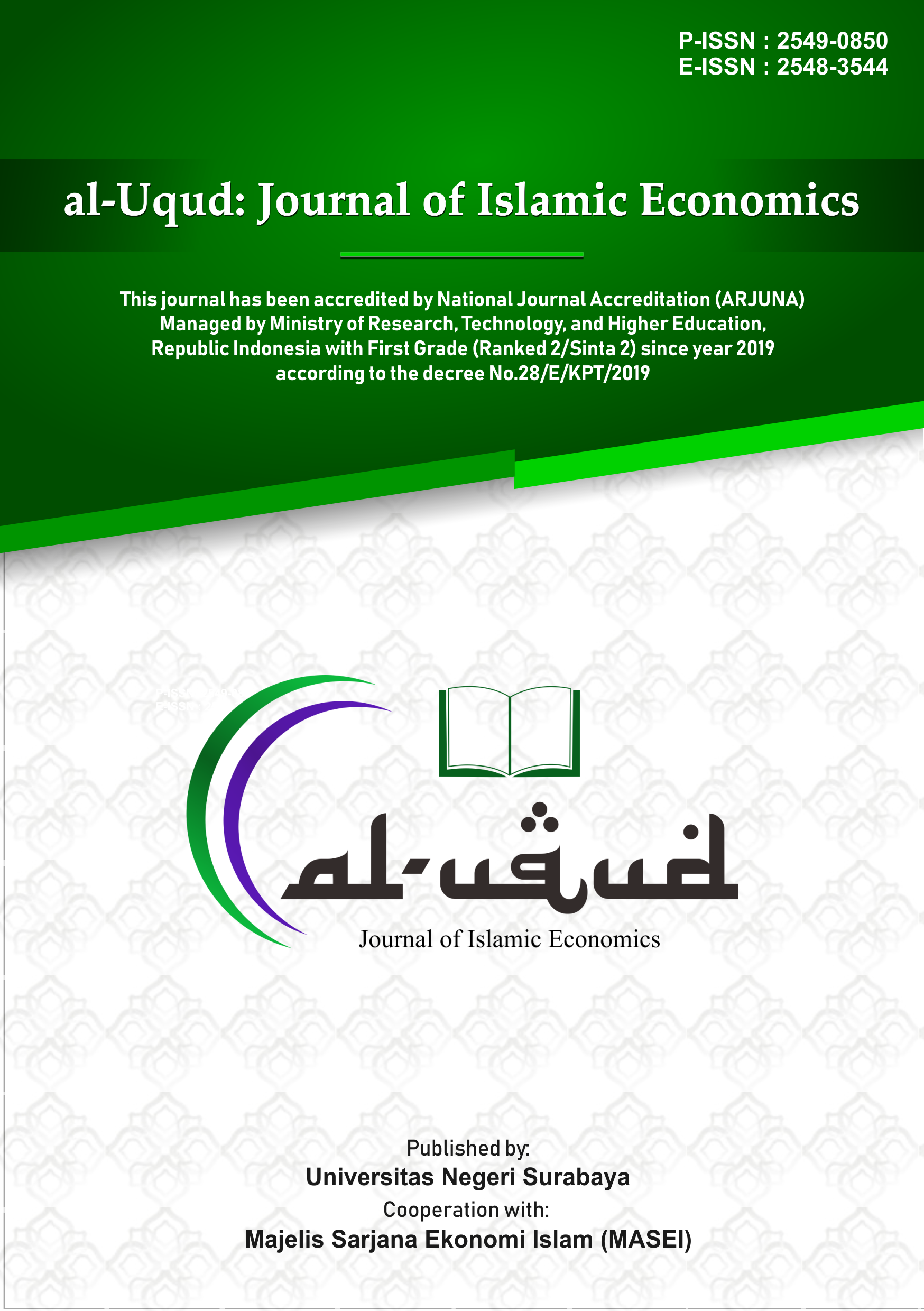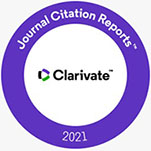MUSLIM CONSUMER BEHAVIOR AND HALAL PRODUCT CONSUMPTION
DOI:
https://doi.org/10.26740/al-uqud.v3n2.p161-173Keywords:
Halal Products, Mental health, IslamAbstract
The purpose of article writing is to find out the impact of modernization on lifestyle in some Muslim societies that have a tendency to ignore the parameters of religion (Islam) in terms of consuming a food / beverage, medicine, even cosmetics product. The research method used is library research. The result of the analysis is that anything consumed in an Islamic perspective has implications for mental health. this is where awareness is needed that when Allah SWT. has given signs about halal and haram for food or drink, so there is a wisdom behind the provisions of Allah. In the context of normative law in Indonesia, halal standardization has also been strengthened by the Law of the Republic of Indonesia Number 33 of 2014 concerning Guarantee of Halal Products as a whole to all levels of society. In addition, the Government has also formed a body called the Halal Product Guarantee Agency which has the duty to hold a Halal Product Guarantee. This shows that the Government is also very concerned about the needs of its citizens in meeting the consumption of all products with halal standards.
References
Al-Kwifi, S. O., Farha, A. A., & Ahmed, Z. U. (2018). Dynamics of Muslim Consumers Behavior Toward Halal Products (Explaration Study Using fMRI Technology). International Journal of Emerging Markets.
Ardyanto, T. (2004). MSG dan Kesehatan: Sejarah, Efek dan Kontroversinya. Inovasi Vol. 1/XVI
Arsil, P., Tey, Y. S., Brindal, M., Phua, C. U., & Liana D. (2018). Personal Values Underlying Halal Food Consumption: Evidence From Indonesia and Malaysia. British Food Journal.
Harnowo S. (2002). Alquran dan Terjemahannya dalam Tiga Bahasa (Arab, Indonesia, dan Inggris). Depok : Al-Huda.
Harnowo, S. (2002). Pengaruh Kehalalan suatu Produk terhadap Kesehatan (Makalah). Disampaikan dalam seminar nasional œsertifikasi halal atau suatu produk, yang diselenggarakan oleh UKKI Unesa Surabaya, 4 Mei.
Hawari, D. (1997). Al-Quran : Ilmu Kedokteran Jiwa dan Kesehatan Jiwa. Yogyakarta: Dana Bhakti Prima Yasa.
Ilyas, R. (2015). Konsep Maslahah Dalam Konsumsi Di Tinjau Dari Perspektif Ekonomi Islam. Jurnal Perspektif Ekonomi Darussalam, Vol.1No.1.
Iranmanesh, M., Mirzaei, M., Hosseini, S. M. P., & Zailani, S. (2019). Muslims Willingness to Pay for Certified Halal Food: an Extension of The Theory of Planned Behaviour. Journal of Islamic Marketing.
Kemenag. (2017). Kementerian Agama RI dalam angka 2016, biro hubungan masyarakat, data dan informasi.
Khomsan, A. (2003). Pangan dan Gizi Untuk Kesehatan. Jakarta : PT. Raja Grafindo Persada.
Kurniawati, D. A., & Savitri, H. (2019). Awareness Level Analysis of Indonesia Consumers Toward Halal Product. Journal of Islamic Marketing.
Lembaga Pengkajian Pangan, Obat-obatan dan Kosmetika MUI Jawa Timur. (1999). Buku Panduan Halal 1999. Jawa Timur : LPPOM.
Mukhtar, A., & Butt, M. M. (2012). Intention to Choose Halal Products: The Role of Religiosity. Journal of Islamic Marketing Vol. 3 Iss: 2 pp. 108-120.
Muhamad, N., Leong, V. S., & Isa N. M. (2017). Does The Country of Origin of a Halal Logo Matter? (The Case of Packaged Food Purchases. Review of International Business and Strategy.
Muslim. (1990). Al-Jamius Shahih Muslim (Hadits Shahih). Surabaya : Karya Utama.
Nurhayati, T., & Hendar, H. (2019). Personal Intrinsic Reliosity and Product Knowledge on Halal Product Purchase Intention: Role of Halal Product Aawareness. Journal of Islamic Marketing.
Nurjannah. (2006). Makanan Halal dan Penyembelihan Islami. Jurnal Aplikasi Imu-Ilmu Agama, Vol.VII No.2.
Qardhawi, Y. M. (2009). Halal dan Haram dalam Islam. Surabaya : Bina Ilmu.
Shahid, S., Ahmed, F., Hasan U. (2018). A Qualitative Investigation into Consumption of Halal Cosmetic Products: The Evidence from India. Journal of Islamic Marketing.
Shihab, M. Q. (1999). Wawasan Al-Quran (Tafsir Maudhui atas Pelbagai Persoalan Umat). Bandung: Mizan.
Shihab, M. Q. (2007). Membumikan Al-Quran. Bandung: Mizan.
Thomson, R., & Standart, D. (2018). State of the global Islamic economy report, 2016-2017. Thomson reuters in collaboration with Dinar standart.
Suesilowati, E. (2017). Perilaku Konsumsi Muslim dalam mengkonsumsi makanan halal. Diperoleh dari www.ekonomisyariah.org
Sukoso. (2018). Badan Penyelenggara Jaminan Produk Halal. www.BPJH.kemenag.co.id.
Sulistiani, L. S. (2018). Analisis Maqashid syariah dalam Pengembangan Hukum Industri Halal di Indonesia, Law & Justice Jurnal, Vol.3 No.2.
Supratno, H. (2002). Sertifikasi Halal dan Pendidikan Konsumen dalam Mencermati Makanan, Minuman, Obat-obatan, dan Kosmetika Halal (Makalah). Disampaikan dalam seminar nasional œsertifikasi halal atau suatu produk. Unesa. Surabaya, 4 Mei.
Yayayan Penyelenggara Penterjemah/Penafsir Al-Quran. (1971). Al-Quran dan Terjemahannya, Jakarta.
Yani, M. T. (2007). Dialektika Seputar Pendidikan dan Keagamaan. Surabaya : Unesa University Press.
Downloads
Published
How to Cite
Issue
Section
License
CC BY 4.0 Abstract views: 3988
,
Abstract views: 3988
, PDF Downloads: 2133
PDF Downloads: 2133








